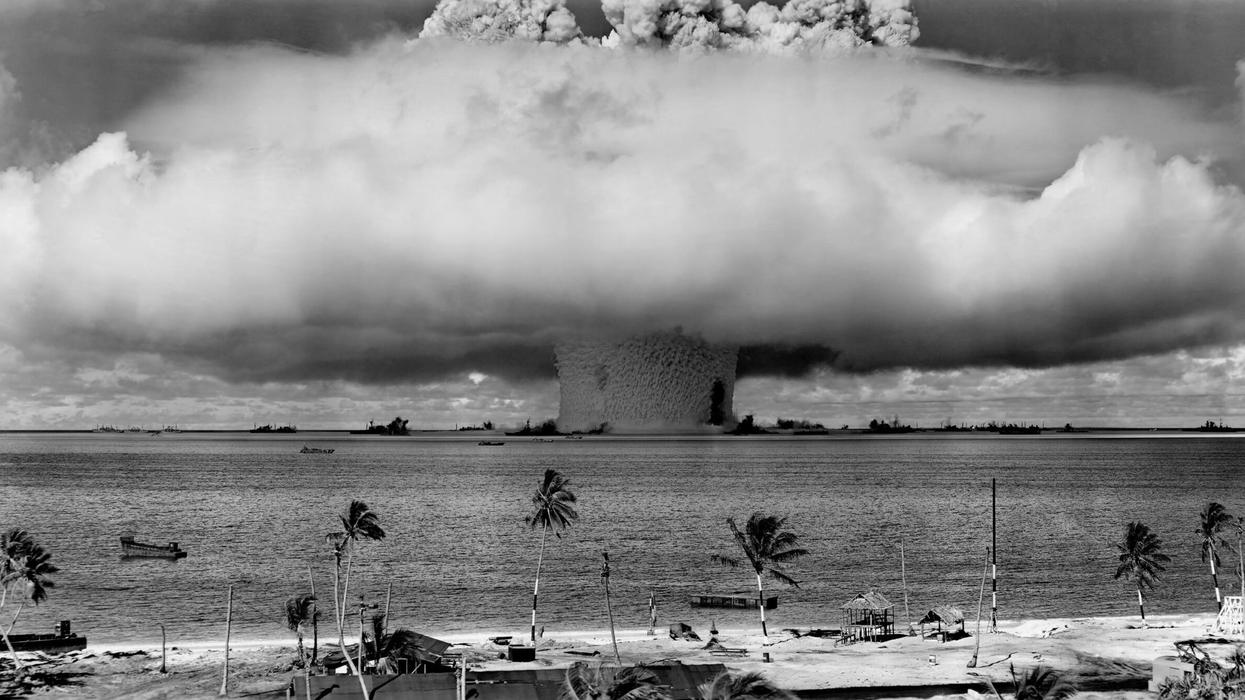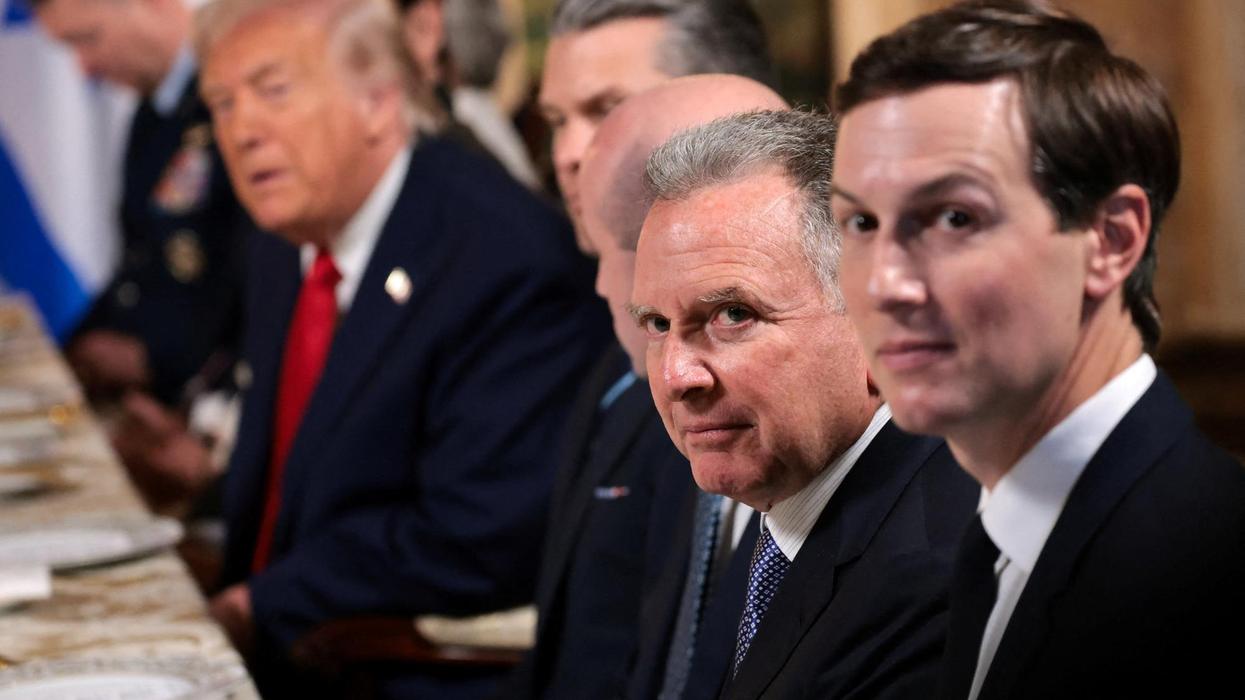Against the backdrop of escalating violence in Libya, a partnership between Libyan General Khalifa Haftar and Syrian President Bashar al-Assad has been strengthening, while Greece and Cyprus recently re-established their official diplomatic relations with the Syrian government. From a geopolitical standpoint, the growing ties between Libya’s Tobruk-based House of Representatives, Athens, Nicosia, and Damascus are perhaps best understood within the context of a growing number of actors working in tandem to establish a front against Turkey’s so-called “neo-Ottoman” agenda. This front aims to curb Turkey’s increasing influence in the Eastern Mediterranean after its maritime agreement with Libya’s internationally-recognized government in Tripoli.
Earlier this year, Libya’s embassy re-opened in Damascus with the diplomatic mission currently representing the Haftar-allied House of Representatives. At the re-opening ceremony, Syria’s Deputy Foreign Minister Faisal Mekdad said, referring to the Turkish president, that “terrorism will kill any Arab country if it’s permitted and if the criminal Erdogan is permitted to win this fight.” This month, shortly after the Athens-Damascus rapprochement, Greek City Times published a piece recalling a history of Athens and Hafez al-Assad’s government sharing a common understanding about Turkey and invoking the Syrian state’s sovereign rights to Turkey’s Hatay province.
Haftar and Assad, along with their supporters, speak similarly of Turkey and its Muslim Brotherhood-friendly foreign policy, accusing Ankara of supporting violent extremists such as Islamic State across the Arab world. Moreover, Haftar and Assad’s views on political Islam, terrorism, and other issues are closely aligned, much like the common interests on the part of Assad and his Egyptian counterpart Abdel-Fattah el-Sissi, who also sponsors Haftar and has strong ties with Greece.
Within this context, on May 11, Cyprus, Egypt, France, Greece, and the United Arab Emirates issued a strongly worded joint statement condemning Turkey’s “illegal” actions in the Eastern Mediterranean and military intervention in Libya. This diplomatic maneuver was highly illustrative of new geopolitical tensions in the Mediterranean that are playing out at a time in which more players are viewing Ankara’s agenda as a threat. On May 14, Jens Stoltenberg, the Secretary General of NATO, seemed to have provided an indirect answer to those five countries’ statement. He told La Repubblica: “There is an arms embargo in Libya to which all parties must abide. This does not mean putting the U.N.-recognized Fayez al-Sarraj government and Haftar into the same equation. Therefore, NATO is ready to support the Tripoli government.”
Russia’s role
Although Turkey and Russia are pragmatic in how they address their competing interests and strategic clashes, there is no denying that Ankara and Moscow’s relationship is becoming more conflictual. Ankara openly admits to sending anti-Assad Syrian militants to fight against Haftar’s forces in Libya, while the U.S. government accuses the Russian and Syrian governments of coordinating the deployment of pro-regime Syrian combatants into the fray to fight against the Turkish-backed Government of National Accord’s loosely aligned militias. Earlier this month, leaked U.N. documents also highlighted Russian support for Haftar’s attacks on Tripoli through the Wagner Group, a private military firm under U.S. sanctions.
As Turkey sees it, neither Syria nor Libya can be left for Russia to fully dominate. Furthermore, Ankara does not want to see either Haftar or Assad integrated into the diplomatic fold of either the Arab world or international community. The view from Ankara is that if Turkey does not act, Russia, Assad, and Haftar will be allowed to create conditions in the region that undermine Ankara’s vital interests.
Turkey’s relations with Abu Dhabi are growing increasingly tense while Ankara fears the risks of a geopolitical situation emerging in the Middle East and North Africa whereby the UAE, Egypt, and Saudi Arabia — along with the Syrian government, Libya’s eastern administration, Greece, and Cyprus — form an anti-Turkish, anti-Muslim Brotherhood front. The growth of the Haftar-Assad partnership along with the recent Greece-Syria and Cyprus-Syria rapprochements illustrate how the ambitions of Turkey face formidable challenges. The de facto alliance between the UAE and Israel, as well as the rapid development of strategic ties between Israel and Greece add to Ankara’s burden.
Turkey’s energy interests in the Mediterranean Sea make the future of Libya highly important to Ankara’s geo-economic and geopolitical agendas in the region. Moreover, with the loss of Egypt as a strategic partner amid the 2013 coup d’état, and the growing alignment of Cyprus, Greece, and Syria against Ankara, the possibility of the Government of National Accord falling to the anti-Turkish Haftar constitutes a grave threat to Turkey. Ankara seeks to prevent more Mediterranean actors from working together to isolate Turkey in the sea’s eastern half by nullifying its agreement, signed in November 2019, with Libya’s Government of National Accord on sea borders. Within this context, Turkey’s leadership has wanted to use not only its own military to directly intervene in Libya’s civil war, but also its Syrian clients. Ankara also sees itself as vulnerable to the chaos in Idlib, understanding the serious economic, security, political, and social risks if a regime offensive triggers a massive influx of Syrian refugees into Turkey. Such a development is constantly in Turkish officials’ minds when weighing their options vis-à-vis Syria’s “final battle”.
Implications for U.S. foreign policy
The $64,000 question perhaps pertains to the U.S.-Turkey alliance. This growing front of Arab and European states increasingly united against Turkey’s regional ambitions, along with mounting friction in Russian-Turkish relations, will be watched closely by the Trump administration. These circumstances leave Turkey with almost no choice but to turn to the U.S., which, like Ankara, views Haftar and Assad as illegitimate.
As Turkey and the UAE’s “Cold War” turns increasingly hot in the tumultuous MENA region this summer, diplomats in Ankara may be increasingly focused on trying to convince their counterparts in Washington to put more pressure on Abu Dhabi to stop “spreading chaos,” as Turkey’s leadership describes Emirati foreign policy. Furthermore, Ankara will likely push for U.S. authorities to take legal action against Haftar, who has U.S. citizenship, under the Torture Victim Protection Act of 1991.
At this point, Turkey’s government is extremely angry at the UAE for its actions in Libya and elsewhere, which Ankara views as a direct threat to its key interests. The recent developments in Libya and Syria have also added major stress points to the Ankara-Moscow relationship which has arguably passed its high point following the 2016 coup plot that pushed Turkey’s government closer to Russia in order to secure greater autonomy from NATO. It would appear logical, given the problems which Ankara faces both in its ties with Moscow and with a growing number of Arab states, that Turkey may be expected to work more closely with the next U.S. administration regardless of whether that is led by Donald Trump or Joe Biden, and re-strengthen Ankara’s ties with Washington. In this context, Turkey and the UAE’s clashes will likely not only play out in proxy wars in Libya and elsewhere in the MENA region, but also in the arena of lobbying in the U.S. capital.
Washington will most likely have an open ear to the Turkish point of view, given that it is in the interest of the U.S. to have Ankara act as a counterweight to the influence Moscow has gained in the eastern Mediterranean through its presence in Syria and Libya. As a senior U.S. defense official said in late April, “Russia’s presence in Libya is even more dangerous than the threat posed by ISIS remnants operating in the south.”
















